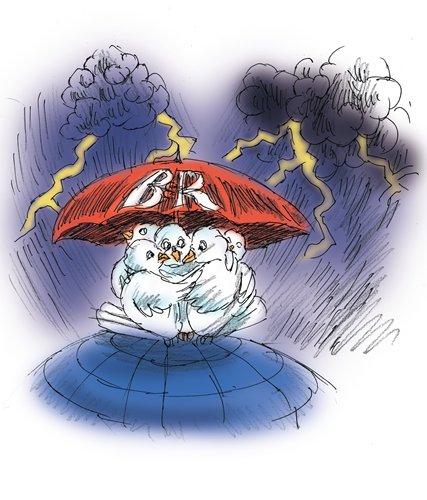
(Photo: Global Times)
Among all the geo-strategic regions in the world, Eurasia has witnessed the most sophisticated contradictions and toughest scenarios. Meanwhile, it has the biggest influence on world peace and development, the global order and architecture. Therefore, safeguarding its security and stability and promoting socio-economic development are in the interest of regional stakeholders - the Shanghai Cooperation Organization (SCO) members, observers and dialogue partners. For them, it's necessary to float a new concept of "grand Eurasian cooperation".
Such cooperation will involve a wide spectrum of politics, security, economy, culture and international strategies across "the vast SCO space, which now extends from the Arctic to the Indian Ocean and from the Pacific to the Baltic Sea," in the words of SCO Secretary-General Rashid Alimov.
"Grand Eurasian cooperation" aims to forge a community of shared destiny with the central and eastern Eurasia at the center. A strategic analysis of its momentous significance is a must to rev up such cooperation. For one, Eurasian countries should join hands in defending regional peace and stability. To control resources of the continent, scramble for Eurasian sphere of influence and check emerging countries including Russia and China, hegemonic power and its allies sensationalized neo-interventionism, neocolonialism, unilateralism and power politics, instigated Color Revolution and precipitated regime change.
All this has created power vacuum in some nations and triggered collective anxiety in the Islamic world. That's why there is resurgence of religious extremism, violence and terrorism in central and western Eurasia, migrant influx blighting the European Union, and a threat to the security of SCO members.
On that account, Eurasian nations must, in recognition of the severity of the security challenges and the root causes of the current turmoil, work together to resist neo-interventionism and hegemony of the West and promote national and sectarian amity.
In an era of globalization, no country can develop alone. All-win cooperation is the only way out. As hegemonic power is anxious to seek "deglobalization" or "anti-globalization," deepening regional economic integration is an effective way to ratchet up "new globalization".
Most central Eurasian countries are developing nations which have common strategic interest appeal in seeking development and improving people's livelihood. On both ends of Eurasia sit major world economies and there is a high level of complementarity between economies of nations on the continent. All of them should be committed to the "grand Eurasian cooperation" - a valid approach to accelerating industrialization and modernization, creating more jobs and improving people's wellbeing. It will also help the continent, home to 70 percent of the world population, and contribute to global economic growth.
To prevent emerging countries from rising, hegemonic power has launched peremptory trade wars, attempted to protect the dollar's hegemony and imposed sanctions on unwarranted charges. Furthermore, they schemed the Indo-Pacific strategy to contain China, tried to manipulate relations among emerging powers and threatened a new arms race, all of which require Eurasian nations to make concerted efforts to build a new international order.
They should adopt a common ground in opposing bullying, not allowing hegemonic power to create animosity among countries of the developing world. Enhancing cooperation within the Belt and Road initiative, configuring a broader Eurasian economic partnership and deepening Eurasian regional integration are key to achieving common prosperity and development.
These efforts will ultimately lead to the building of a Eurasian community of shared destiny based on the SCO and in keeping with the principle of the Shanghai Spirit. While superpowers are still ganging up, developing countries, especially emerging economies, should eliminate strategic suspicion and increase mutual trust, forge partnerships rather than alliances, set up a united front of emerging powers different from the West, and promote multilateral global governance to build a new international order where the developing world can have a say.


